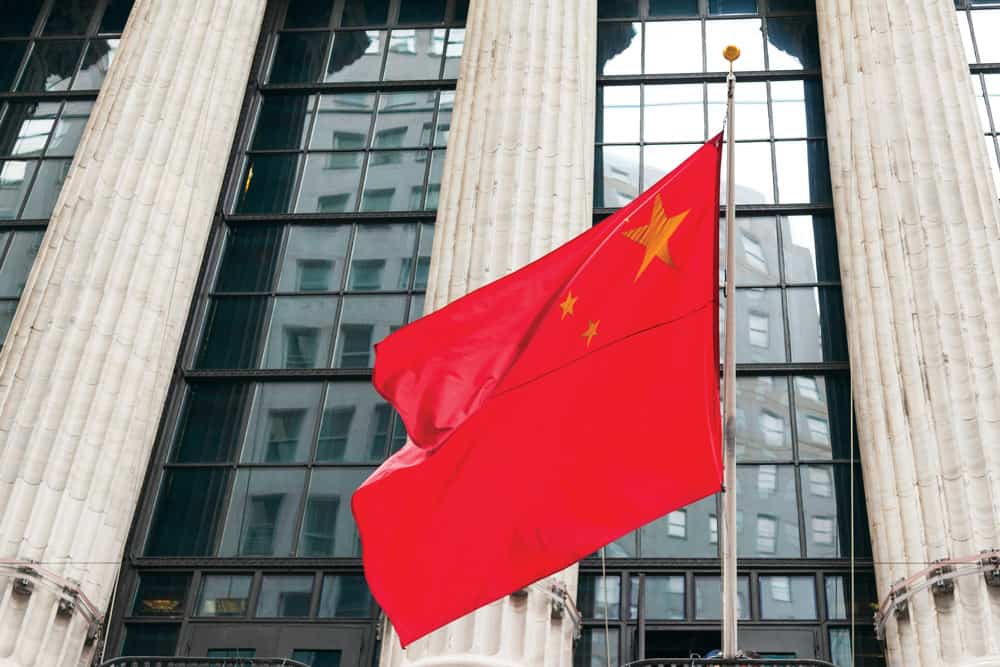China’s new legal reform for business is necessary, but contradictory, writes Mark Godfrey.
Can China have a high income economy without credible, transparent institutions? That’s a question worth pondering in recent months as, away from the headlines of slowing economic growth and sagging stock markets, the Chinese government has cracked down on proponents of free speech and political rights – while at the same time promoting legal reform across the entire country.
The jailing of scores of lawyers and rights campaigners may be a way to limit dissent while the government tries to implement economic reform.
Even as a two year campaign against official corruption has created much public support at a time of economic uncertainty, the government is also trying to make life somewhat easier for private businesses which it hopes will create jobs and wealth.
While ruthlessly suppressing dissent, Beijing has pushed some new initiatives which look set to speed up the legal process for business and non-political cases.
After promising in January last year to eliminate a conviction quota system for judges, in March China published measures to name and shame officials who interfere in judicial cases. Of course this development only concerns non-political cases but government hopes it can prevent this common problem.
REFORM POLICY
Chinese provincial officials have a long tradition of interfering in civil and commercial cases to protect local or personal interests – hence there’s been a history of provincial petitioners heading to Beijing to a central government office which accepts written appeals for justice.
With rich irony, legal reform policy appears to be set not by any independent judicial body but by the Central Committee of the Commission for Political and Legal Affairs of the Communist Party of China. This body recently adopted a document with the aim of “safeguarding judicial independence”.
New rules issued by the General Office of the Central Committee of the Communist Party of China (CPC) and the Chinese cabinet lays out regulations to prevent interference as well as specific punishments if violations were to occur.
Last year in November meanwhile, measures were enacted that prohibit courts from heeding requests from “any organisation or individual” that would impede judicial fairness.
FRAMING THE VERDICT
And yet China’s system of ‘political and legal committees’ will continue to co-ordinate the work of the police, prosecutors and judiciary at every level. China’s court system is tiered from the ‘People’s Basic Court’ at local level to the ‘intermediate court’ at city level and the Supreme Court in Beijing at the top of the pile. The political and legal committee at local level in particular decides how a verdict should be framed.
So that really questions how real the reforms are. Furthermore, while China’s legal system may allow for foreign victims of corporate malfeasance to sue for damages, justice is too often whatever you can afford. Smaller companies find it very difficult to take a case against a Chinese manufacturing partner for fraud or for secretly counterfeited and distributed products.
Many foreign enterprises are reluctant to bring litigation in China because they fear local jurisdictions will favour local companies
Similarly, Chinese courts don’t award legal costs against the loser. Hence it’s so time consuming and expensive that most overseas (and some local) companies don’t bother to use the Chinese courts against a local party. That’s why for years foreign investors signed contracts with Chinese partners on the basis that disagreements would be mediated in Hong Kong, which applies a British-style legal system.
CAMPAIGN FOR CHANGE
As proof of the cost and unpredictability of Chinese justice, foreign executives frequently point to the bizarre case featuring Swiss-based electronic components maker ABB which sued China United, a private investigation firm it engaged to hunt counterfeiters – an executive at China United was found to be collaborating with those same counterfeiters to make sales of counterfeit ABB goods in the Middle East.
After getting such short notice of the hearing from Beijing No. 2 Intermediate Court that it wasn’t able to secure visas for foreign witnesses, ABB lost the case in a hearing which took only a single day in front of three judges. Despite having compiled and filed 1,500 pages of evidence, ABB was ultimately forced to pay over RMB3.4 million in fees withheld from China United.
BUREAUCRACY
The current reform drive springs from a pledge to make China a country ruled by law, part of a Xi Jinping campaign started in 2014.
Separately, the government has begun trial programmes in a few parts of the country, including the business capital Shanghai, to simplify court bureaucracy: judges in the city are allowed to make judgments without getting approval from the court’s chief justice, for instance.
Another big reform will see a clear-out of under-qualified judges and a pay rise of up to 50% for a third of the country’s 200,000 judges in order to reverse an exodus of legal talent to private law practices.
Crucially, there has been no movement to separate legal and political powers in China’s recent raft of legal reform. Rather, the country’s president Xi Jinping appears to be betting that a more professional, better paid judiciary will dispense more timely justice to corporate litigants.
RULE OF LAW
It remains unclear how the reforms will end local favouritism whereby local courts find for local firms. Many foreign enterprises are reluctant to bring litigation in China because they fear local jurisdictions will favour local companies.
China’s legal reform will only go so far. Making judges and court officials less corrupt (through better pay and status) does not ultimately establish the rule of law.
The reforms are ultimately limited because of the continued existence of the ‘political and legal committees’ which still co-ordinate the work of the police, prosecutors and judiciary.
The functionality of Chinese courts for business was tested recently when international companies asked to be allowed challenge rulings of regulators in Chinese courts.
None of the recent barrage of anti-trust cases against foreign companies operating in China are known to have been challenged in local courts. It’s unlikely that any case that might question the rationale and decision making processes of the government will be allowed proceed.
TRANSPARENCY
China’s future economic growth and prosperity depend on a fair, transparent legal system. But that seems to conflict with the survival of the country’s current political system.
While some reform is better than no reform on the legal front full accountability will only come with an independent judiciary that provides effective oversight and renders decisions without fear of retaliation from officials or without influence by the political process.







